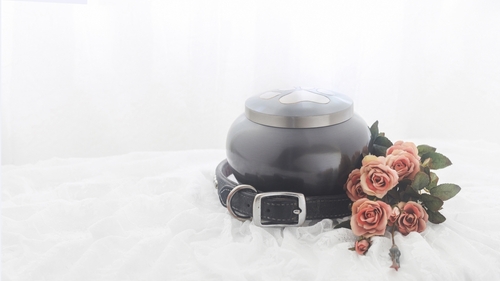
How Often Should You Clean Pet’s Bedding?
September 23, 2022
How To Disinfect My Dog’s Cage?
November 28, 2022Puppy Vaccination Schedule in Singapore
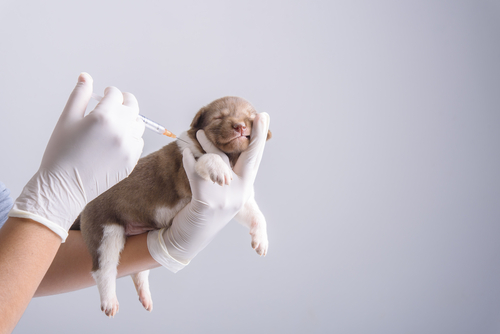
Puppy Vaccination Schedule in Singapore – Puppies are born without immunity (protection) against disease. They rely on the antibodies present in their mother’s milk for the first few weeks of life. These maternal antibodies wane over time and leave puppies susceptible to disease.
Puppies need a series of vaccinations starting at 6-8 weeks until they are at least 16 weeks old. The initial series of vaccinations is given in 3-4 week intervals. After the initial series, puppies need a booster vaccination at one year and then every three years after that for their lifetime. Read on – Puppy Vaccination Schedule in Singapore
Core And Non-core vaccines for puppies in Singapore
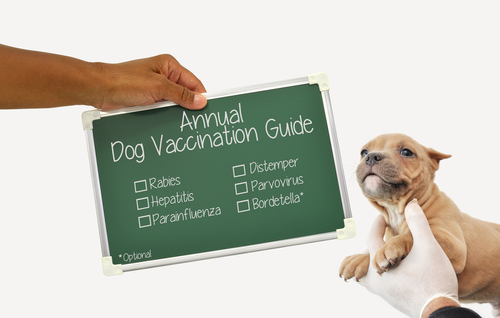
Core vaccines that every puppy in Singapore should receive:
- Distemper
- Parvovirus
- Canine Infectious Hepatitis
- Parainfluenza
These are considered core because they protect against widespread and highly contagious diseases, with a high risk of death. They are also viruses for which there is no cure.
Non-core vaccines for puppies in Singapore:
Several non-core vaccines are available for puppies in Singapore, which your vet may recommend based on your puppy’s lifestyle and risk of exposure to certain diseases. These include:
- Bordetella
- Lyme disease
- Leptospirosis
- Coronavirus
- Giardia
- Intranasal influenza
- Rattlesnake vaccine
When to vaccinate your puppy in Singapore
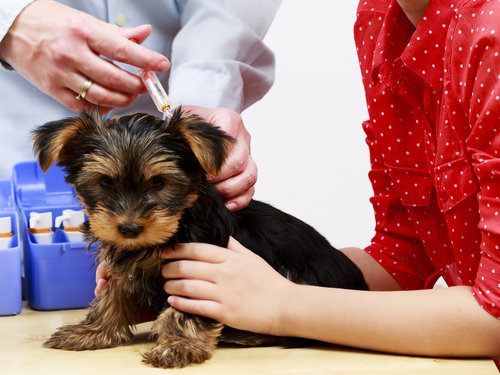
The recommended schedule for vaccinating puppies in Singapore is as follows:
- * 6-8 weeks old: Distemper, Hepatitis, Leptospirosis, Parainfluenza, Corona virus, Bordetella
- * 10-12 weeks old: Distemper, Hepatitis, Leptospirosis, Parainfluenza, Coronavirus, Bordetella, Lyme disease
- * 14-16 weeks old: Distemper, Hepatitis, Leptospirosis, Parainfluenza, Coronavirus, Bordetella, Lyme disease
- * 1-year-old: Distemper, Hepatitis (booster), Leptospirosis, Parainfluenza, Coronavirus (booster), Bordetella (booster), Lyme disease (booster)
Routine blood testing before vaccination
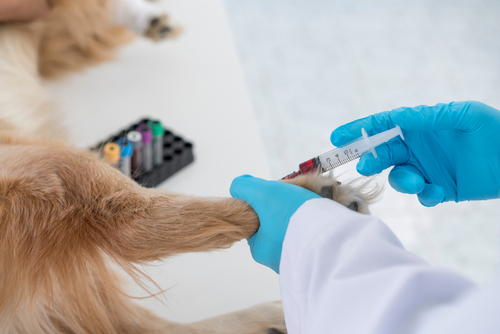
Your vet may recommend routine blood testing before vaccinating your puppy. This is because some puppies may have a “maternal antibody interference”, where they still have high levels of antibodies from their mother that can interfere with the vaccine’s ability to stimulate immunity. Routine blood testing can help determine if your puppy is at risk for this.
What are the factors to consider when vaccinating your puppy in Singapore?
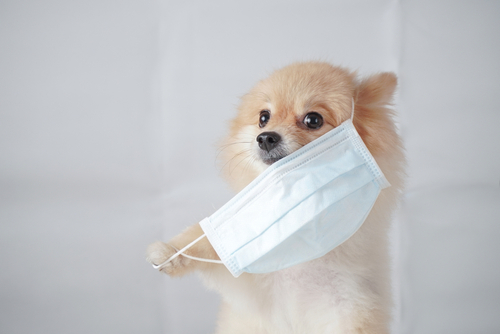
There are several factors to consider when deciding which vaccines to give your puppy in Singapore, including:
Your puppy’s age
When puppies are first born, they receive immunity (protection) against disease from their mother’s milk. This maternal immunity starts to wane at around 6-8 weeks when puppies should start their vaccine series.
Your puppy’s lifestyle
If your puppy goes outside and mingles with other dogs, it will be at a higher risk of disease exposure and need to be vaccinated accordingly. If your puppy is mostly indoors and doesn’t socialize with other dogs, they will be at a lower risk of disease and may not need certain vaccines.
The diseases prevalent in Singapore
Some diseases are more common in certain parts of the world than others. For example, leptospirosis is more common in tropical climates like Singapore. Your vet can advise you on which diseases are most prevalent in your area and which vaccines your puppy will need.
Your puppy’s risk of exposure to certain diseases
Even if a disease is not common in your area, your puppy may still be at risk of exposure if they travel or socialize with dogs from other areas. For example, if you take your puppy on vacation to Bali, it will need to be vaccinated for rabies.
Your puppy’s health history
If your puppy has any underlying health conditions, it may be more susceptible to certain diseases and may need to be vaccinated accordingly. For example, puppies with heart disease may need to be vaccinated for Bordetella to help prevent them from getting kennel cough.
What are the side effects of vaccinations?
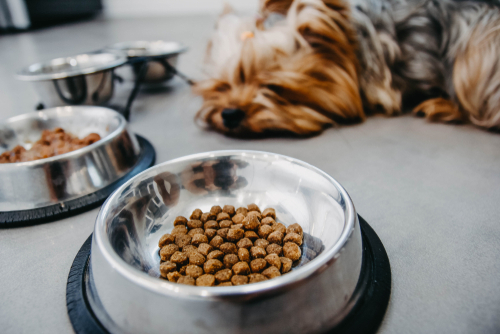
Mild fever
It usually goes away within a few days. Other possible side effects include:
Loss of appetite
Losing interest in food is normal after vaccination but should only last for a day or two. If your puppy stops eating or has a loss of appetite that lasts more than a few days, please contact your vet.
Lethargy
Your puppy may be tired after vaccination but should return to normal energy levels within a day or two. Please contact your vet if your puppy is still lethargic after a few days.
Soreness, redness, or swelling at the injection site
You may notice some soreness, redness, or swelling at the injection site, which is normal. Please contact your vet if the reaction is severe or lasts more than a few days.
Allergic reactions
Allergic reactions to vaccinations are rare but can occur. If you notice your puppy having difficulty breathing, swelling of the face or extremities, or collapse, please seek emergency veterinary care.
Other reactions
Other, less common reactions to vaccinations can include diarrhea, vomiting, or seizure. If you notice any of these symptoms, please contact your vet.
The benefits of puppy vaccination

There are many benefits to vaccinating your puppy, and the following are five of the most important:
Help protect your puppy from deadly diseases.
This is the most important reason to vaccinate your puppy. Vaccines help protect against diseases that can kill or cause serious health problems.
Help keep your puppy healthy.
Vaccination can help reduce the severity of certain diseases and the risk of complications if your puppy does become infected.
Help reduce the spread of disease.
Vaccinating your puppy helps protect them from disease and prevents them from spreading disease to other dogs.
Save you money in the long run.
The cost of vaccinating your puppy is much less than treating them for a disease. In some cases, treatment may not be possible or may not be effective, and your puppy may need to be euthanized.
Give you peace of mind.
Knowing that your puppy is protected from deadly diseases can help you relax and enjoy your time with them without worry.
Puppy Vaccination Schedule in Singapore – Conclusion
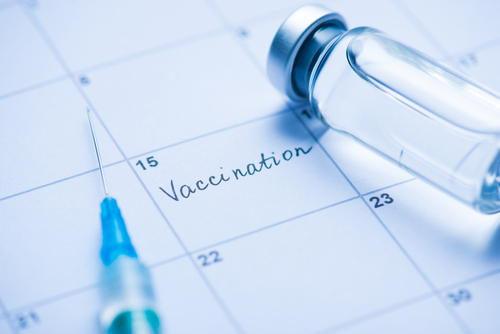
Puppy vaccinations are an important part of keeping your puppy healthy. They help protect against deadly diseases and can reduce the severity of certain diseases. Vaccinations are also important for preventing the spread of disease.
The cost of vaccinating your puppy is much less than treating them for a disease, so it is a wise investment. Knowing your puppy is vaccinated can help you relax and enjoy your time with them.



